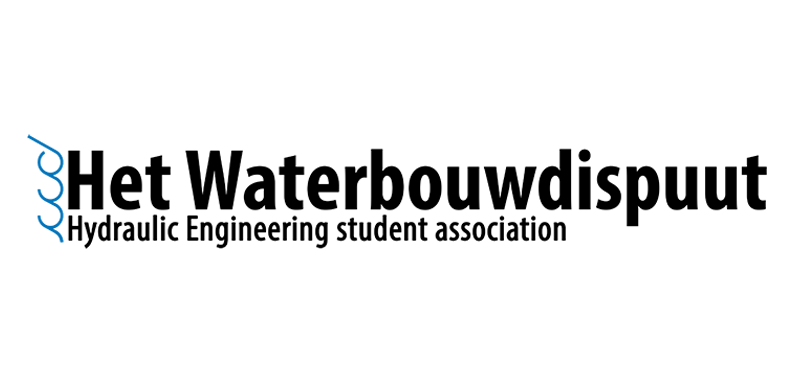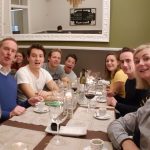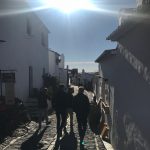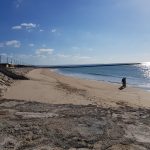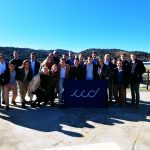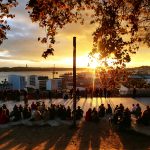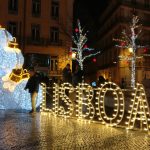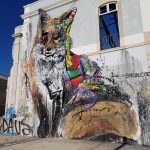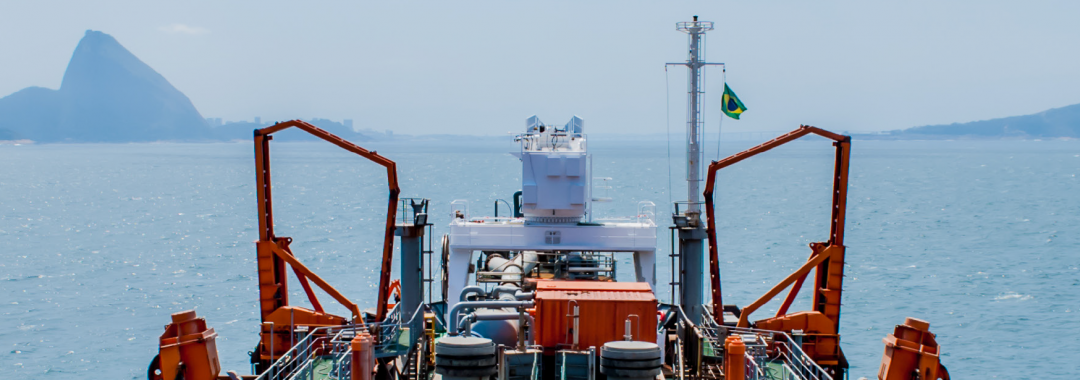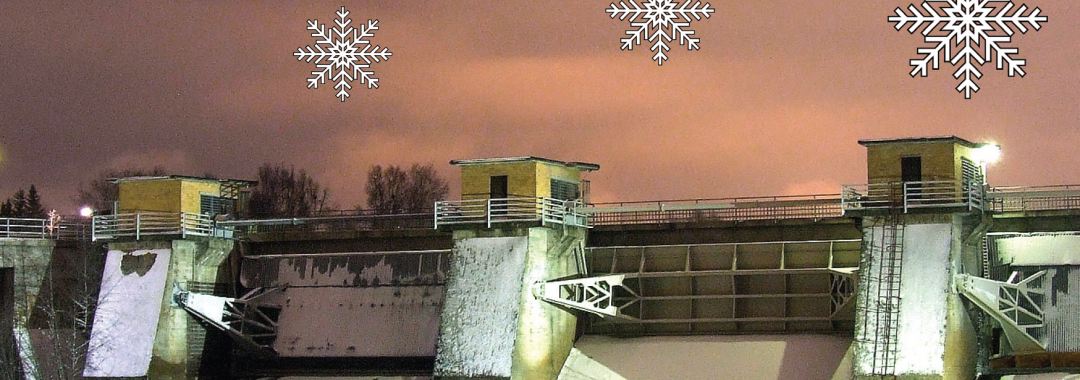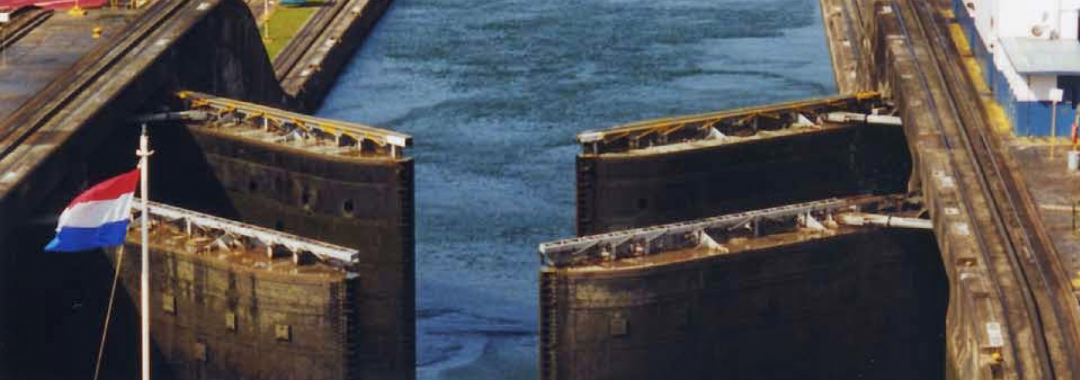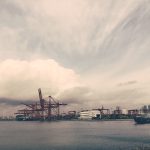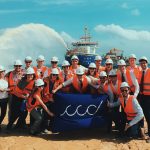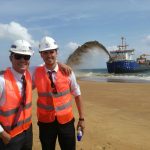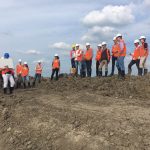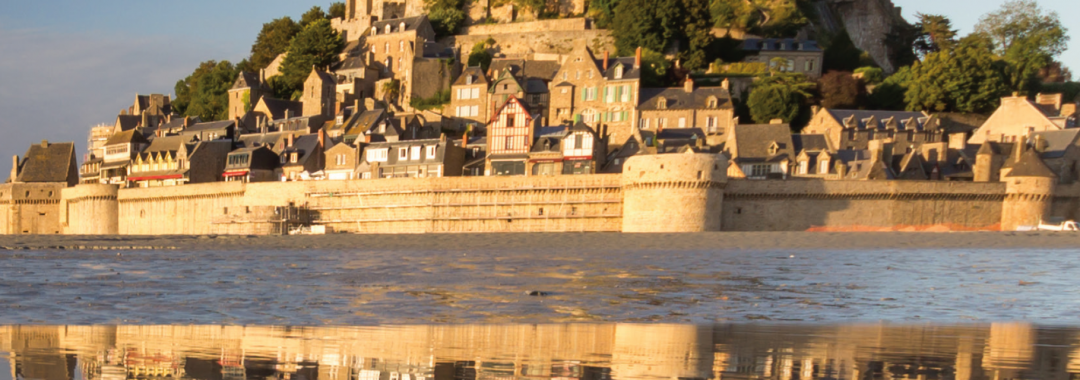This year a group of 25 Hydraulic Engineering students as well as Tjerk Zitman and Sierd de Vries gladly exchanged the rainy streets of Delft with the sunny, warm hills of Lisbon for the 3 day excursion of 2017.
The city trip started off on a Thursday afternoon where everyone gathered at Schiphol airport and headed towards the check-in area together. After check-in, we enjoyed a cheeky beverage and then made our way to the plane. Everyone was scattered all over the place and new friends were made on the short 2,5-hour flight to Portugal.
Our bus chauffeur for the weekend met us with a friendly smile as we landed and took us to the beautiful Independante hostel in the center of the city. It is an old building that has been very well maintained over the years with its own beer garden and bar with happy hour each evening, the perfect place to get to know each other better. Once everyone was settled in we made our way to a tapas restaurant for dinner and spent the rest of the evening roaming the busy streets of Lisbon, including the famous Pink Street.
Friday morning we hopped on the bus to our first hydraulic related excursion – the coast of Caparica with coastal geologist Celso Pinto. We had an introduction to the sediment distribution along the coast and the problems the locals are currently facing. We had a tour of the coastal structures that are currently in place and how the coastline has developed over the recent years. This was an extremely interesting case and tested us to think strategically and consider different viewpoints with different challenges than those in the Netherlands.
The afternoon was spent touring the city in true tourist fashion during a walking tour of Bairro Alto, a neighbourhood in the city. We discovered hidden gems of Lisbon and ended the evening eating at Timeout food market where we were spoiled for choice for food and wine.
Saturday morning we were up bright and early and headed towards Alqueva Dam which was our second educational trip of the weekend. The two-hour drive flew by and before we knew it we were staring at the largest dam in Europe. This was a breathtaking construction and it was difficult to imagine the enormous volume of water it contained. After an explanation of the area and the dam, we had time to take some pictures and then it was time to head back.
On the way back to Lisbon we had a pit stop at Monsaraz, a civil parish near the Spanish border. Lunch in the afternoon sun, and a view of the horizon where Spain lies made for the perfect time to recover from a long day. This was also the last night of the trip and we celebrated in style back in Lisbon at a classy restaurant where we ate like kings.
Sunday may have been the last day but an evening flight meant that the daylight hours could be taken advantage of. We started off with the last excursion to an Oerias Marina where we marveled the huge breakwaters and listened to the stories of 15 meter high waves causing chaos in the past. We spent our last hours in Portugal enjoying the sun and views of the blue coastal waters of Cascais.
Overall our time in Lisbon was filled with laughter, learning and lots of sun, little did we know that about a week later we would be covered in snow back in the Netherlands.
